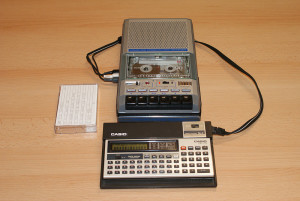 The National Labor Relations Board has ruled that a blanket no-recording policy by Whole Foods is unlawful under the National Labor Relations Act (NLRA). Whole Foods prohibited employees from recording any conversations, images, or meetings without prior approval from management. The employees were informed that the policy’s purpose was to protect the privacy of all employees and make them feel more candid and open about their opinions in the workplace. The company further sought to protect the privacy of disciplinary proceedings and trade secrets.
The National Labor Relations Board has ruled that a blanket no-recording policy by Whole Foods is unlawful under the National Labor Relations Act (NLRA). Whole Foods prohibited employees from recording any conversations, images, or meetings without prior approval from management. The employees were informed that the policy’s purpose was to protect the privacy of all employees and make them feel more candid and open about their opinions in the workplace. The company further sought to protect the privacy of disciplinary proceedings and trade secrets.
The NLRA grants employees the right to engage in protected, concerted activities for the purpose of collective bargaining (“section 7 rights”), and therefore employees necessarily may openly discuss terms and conditions of employment. An employer violates the NLRA if it interferes with the exercise of section 7 rights. Such interference need not be direct, and could involve the mere creation of a policy that employees may reasonably believe prohibits their exercise of these rights. The NLRB found the blanket no-recording rule by Whole Foods to be such an unlawful policy.
The Board discussed several occasions where recordings were necessary for employees to prove NLRA violations by their employers. It further indicated that in some instances, making a recording is itself protected, such as documenting unsafe work practices, logging inconsistent enforcement of policies, documenting discussions on terms of employment, or recording evidence to preserve it for a future proceeding. Although the Board noted that an overriding business interest could permit a restriction on recordings that are otherwise protected, guidelines for creating such a policy.
Whether employees may believe a policy restricts their rights weighs heavily on the surrounding circumstances. Whole Foods attempted to clarify the scope of its policy by informing employees that it encouraged open expression of views and that the policy would promote this agenda. In particular, Whole Foods hosted an annual “town hall” meeting where employees could discuss workplace issues with a regional manager without store management present. The employer believed that the potential for recording devices in the room could discourage candidness. In a different case, a blanket no-recording rule in a hospital was deemed appropriate because employees would have understood this to apply only to the privacy of patients, and not in the context of a protected recording.
The Board distinguished the Whole Foods policy from that of the hospital. Whole Foods employees could potentially understand the recording restriction to apply to meetings beyond “town hall” meetings, including protected recordings of inconsistent policy enforcement. A witness for the employer conceded that the ban on recording would be applied indiscriminately, regardless of whether the recording was of a protected, concerted activity.
Although not addressed in this case, some states outlaw the recording of conversations unless all participants have consented to be recorded. The Board’s ruling may have a different application in these states, including Florida and California, because the recordings deemed “protected” under the NLRA could be unlawful under state law.
